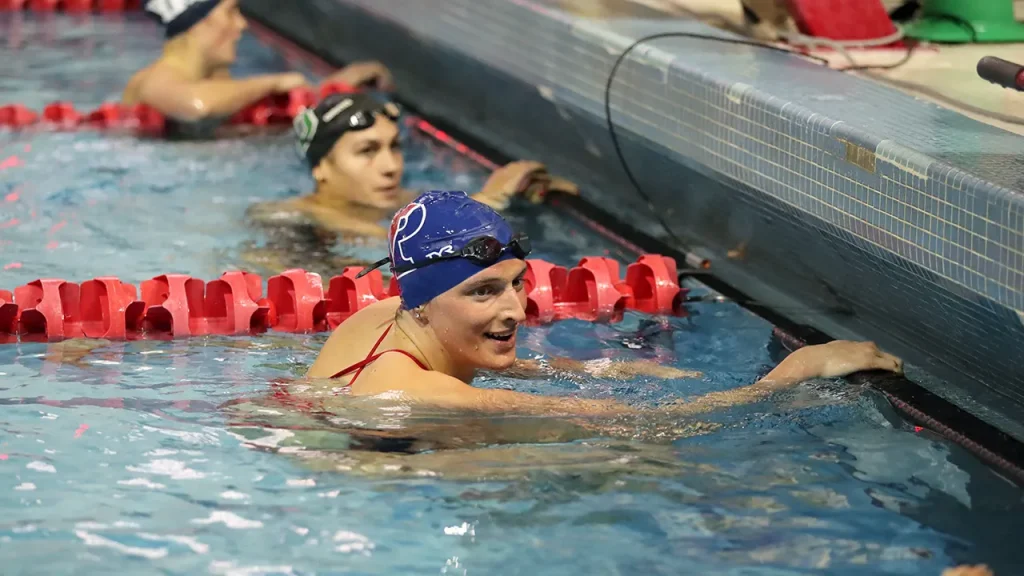The debate surrounding transgender athletes’ participation in women’s sports has intensified, with Georgia’s state Senate committee recently approving the Fair and Safe Athletic Opportunities Act. This bill mandates that student athletes compete on teams aligning with their biological sex at birth. Its passage marks a significant step for Georgia, potentially becoming the 26th state to enact legislation restricting or prohibiting transgender athletes from competing in women’s sports. This legislative action follows the contentious inclusion of transgender swimmer Lia Thomas in the 2022 NCAA women’s swimming championships held in Georgia, which fueled the national discourse on this issue. The bill’s passage underscores the growing momentum behind efforts to regulate transgender athletes’ participation in sports across the United States.
The committee’s decision followed powerful testimonies from female athletes who shared their experiences competing against and sharing locker rooms with transgender athletes, most notably Lia Thomas. Kylee Alons, a decorated former North Carolina State University swimmer, characterized her experience as a “giant social experiment” imposed by the NCAA, disregarding the feelings and concerns of female athletes. Alons described the emotional turmoil of witnessing female athletes lose opportunities due to what she perceived as unfair competition, and the profound discomfort she felt witnessing Thomas’s victories. Her testimony emphasized the emotional toll on female athletes forced to compete under these circumstances.
The issue extended beyond competitive arenas and into the deeply personal space of locker rooms. Former University of Kentucky swimmer Kaitlynn Wheeler, along with Riley Gaines and Paula Scanlan, recounted the unease and vulnerability they felt sharing locker rooms with Thomas, a biological male. They articulated the lack of consent and choice they experienced, highlighting the expectation that they suppress their discomfort for fear of being labelled intolerant or bigoted. Their testimonies painted a picture of female athletes feeling pressured to accept a situation they found inherently uncomfortable and unfair. This specific issue of locker room access adds another layer of complexity to the debate, encompassing privacy concerns alongside competitive fairness.
Wheeler and Lyons, who are also plaintiffs in an ongoing lawsuit against the NCAA challenging its policies on gender identity in sports, leveraged their platform to advocate for the passage of the Fair and Safe Athletic Opportunities Act. Their testimonies were instrumental in bringing firsthand accounts of the female athlete experience to the forefront of the legislative process. This direct connection between personal experience and legislative action underscores the deeply personal nature of this debate. The lawsuit, spearheaded by Riley Gaines, provides a legal avenue for challenging existing NCAA policies, while the legislative efforts aim to establish new state-level regulations.
Despite the emotional testimonies of the female athletes, the bill faced opposition from various groups, including parents, physicians, and advocates for transgender rights. Dr. Jodi Greenwald, a pediatrician, cautioned against the potential harm the bill could inflict on transgender youth, emphasizing their increased risk of suicide and the importance of inclusivity. This opposing perspective highlighted the vulnerable position of transgender youth and the potential negative consequences of exclusionary policies. The debate thus becomes a balancing act between protecting the integrity of women’s sports and safeguarding the well-being of transgender individuals, particularly youth who are already facing significant challenges.
The Fair and Safe Athletic Opportunities Act passed by an 8-3 vote after a nearly two-hour hearing, demonstrating clear support within the committee. Lieutenant Governor Bill Jones celebrated the vote as a victory for women’s sports and a rejection of what he termed “radical liberal” ideologies. He framed the issue as a matter of common sense and reiterated his commitment to protecting female athletes. This strong stance taken by the Lieutenant Governor foreshadows the potential for broader legislative support for the bill as it progresses through the Georgia State Legislature. It also highlights the increasingly politicized nature of this debate, with clear divisions emerging along ideological lines.
The national scope of this issue extends beyond state legislatures, with parallel efforts underway at the federal level. The House of Representatives recently passed the Protection of Women and Girls in Sports Act, which aims to withhold federal funding from educational institutions that permit transgender athletes to compete in women’s sports. This bill garnered overwhelming support from Republicans but faced strong opposition from most Democrats, further underscoring the partisan divide on this issue. A recent New York Times/Ipsos poll revealed that a significant majority of Americans, including a majority of Democrats, oppose the inclusion of transgender athletes in women’s sports. This poll suggests that public opinion, while complex, may lean towards supporting policies similar to the one passed by the Georgia state Senate committee. The confluence of state and federal legislative efforts, coupled with public opinion trends, indicates that the debate over transgender athletes’ participation in women’s sports is likely to remain a prominent and contentious issue for the foreseeable future.

